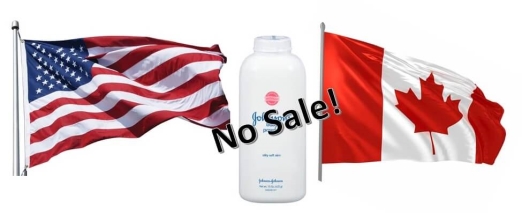
As reported on May 19 by Environmental Working Group (EWG) Johnson & Johnson (“J&J”) will stop the sale of talc-based
baby powder in the US and Canada. The announcement comes in the wake of
thousands of lawsuits alleging asbestos in the iconic product, used by
generations of consumers, caused mesothelioma and ovarian cancer. To date,
jury verdicts totaling billions of dollars have been awarded against J&J,
while countless others await their day in court.
J&J successfully hid knowledge of asbestos contamination and avoided
governmental oversight for over 40 years. It wasn’t until
evidence obtained in consumer lawsuits was published by major news outlets that
the public became aware of the danger presented by the seemingly innocuous product.
These revelations were met with strong denials by J&J. But public outcry
finally pushed the FDA to conduct random testing which, in no surprise
to the consumer lawyers who have been “in the trenches” against J&J,found asbestos contamination in late 2019.
While J&J continues its campaign of denial (it claimed the asbestos
found by the FDA was from an
air conditioner in the testing lab!), Tuesday’s announcement is an important first
step in taking responsibility for the incalculable harm J&J has caused.
It is vindication for the cancer-stricken consumers and their attorneys
who have battled tirelessly against this corporate giant. And it is a
major victory for the public at large, as this dangerous product will
finally be removed from store shelves.
A victory, yes, but no time for a victory lap. J&J will continue its
aggressive defense of victims’ claims for compensation. J&J
will continue the sale of its cancer-causing product to the rest of the
world. And countless other companies, emboldened by J&J’s denials,
will continue the sale of their asbestos-contaminated talc products in
the US and abroad.
In March 2020, the
FDA revealed that 20% of cosmetic talc products it tested were found to contain asbestos.
Just last week,
asbestos was found in two talc-based eyeshadows marketed to young girls by the Jmkcoz Company.
While J&J’s announcement is a major victory, much work remains.
On the legislative front, cosmetic talc products remain exempt from mandatory
testing and approval which apply to countless other consumer products.
On the regulatory front, industry tactics by J&J and others have frustrated
efforts to impose meaningful testing standards. On the legal front, J&J
and others resort to increasingly aggressive and creative measures to
avoid financial responsibility for the human suffering caused by their products.
A battle won, but not the war.